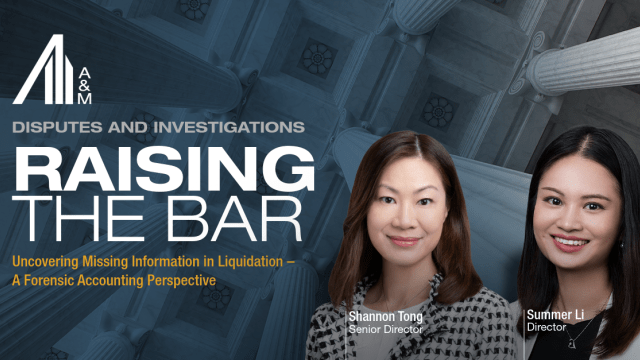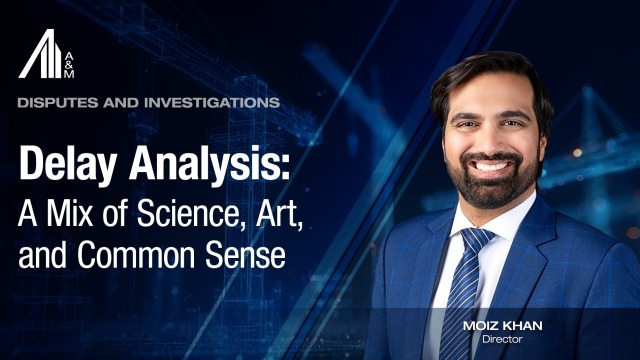The Strategic Imperative of Corporate Governance Due Diligence in Emerging Market Transactions
Corporate governance is often perceived as a compliance requirement rather than a strategic priority. However, in emerging market transactions, where regulatory landscapes are evolving, ownership structures can be complex and governance practices may vary, corporate governance due diligence becomes essential. It is not just a defensive measure to prevent fraud or regulatory breaches; it is a critical enabler of sustainable value creation. Investors who fail to assess governance risks comprehensively may find themselves exposed to financial losses, reputational damage and post-transaction legal complications.
Investments into emerging markets often involve capital from global sources, including pension funds and other institutional investors. It is imperative to ensure that such investments are directed into sound companies to protect the interests of these fund beneficiaries. Failure to do so can lead to significant financial losses and erosion of trust among stakeholders.
Lessons From BRICs Nations: When Governance Failures Erode Value
In the rush to close transactions, corporate governance is often given secondary importance to financial metrics. However, corporate governance deficiencies can create long-term vulnerabilities that financial due diligence alone cannot uncover.
Emerging markets present an even more complex governance challenge. Many companies in these regions are family-owned or promoter-driven, where decision-making is centralized and board independence is weak. Corporate structures may be designed to favor insiders, with inadequate checks and balances to protect minority investors.
Examples of potential corporate governance failures in instances wherein businesses have attracted substantial investments from global investors could include:
- Fictitious Revenue and Financial Misrepresentation: Inflated sales figures, fabricated transactions and aggressive revenue recognition practices could lead to financial restatements. Once irregularities are exposed, investor confidence could collapse, triggering regulatory scrutiny, legal action and sharp declines in valuation.
- Delayed Financial Disclosures and Aggressive Commercial Strategies: Businesses experiencing rapid growth could have delayed financial disclosures or engage in aggressive commercial strategies without adequate internal controls. Such governance gaps could result in operational disruptions, investor lawsuits and prolonged financial instability.
- Expansion-Driven Governance Neglect: Fast-scaling businesses could prioritize market share and fundraising over compliance and governance structures. When financial mismanagement or ethical breaches come to light, the consequences could include mass layoffs, forensic reviews and investor exits, leading to long-term reputational and financial damage.
These types of potential problems highlight the critical importance of robust corporate governance in maintaining company valuation and investor trust.
Key Governance Risks in Emerging Markets
Governance risks in emerging markets are multifaceted and often deeply embedded in business culture. Key governance risks include:
- Promoter Business Practices: One of the most pressing concerns is promoter business practices, where the dominant shareholders exercise disproportionate control. In such cases, due diligence should not only assess financial statements but also investigate governance histories, past legal disputes and promoter conduct in previous ventures. Related-party transactions, a recurring governance issue, should be scrutinized for undisclosed revenue leakages and conflicts of interest.
- Bribery and Corruption Risks: While many countries in emerging markets have anticorruption laws, enforcement is inconsistent, and informal business practices can override formal compliance frameworks. Companies operating in sectors with high government touchpoints — such as infrastructure, energy and healthcare — often face heightened corruption risks, making it imperative for investors to assess anti-bribery compliance mechanisms and the robustness of internal audit functions.
- Data Privacy and Cybersecurity: As emerging markets accelerate their digital transformations, regulatory oversight on data security is tightening. Investors need to assess whether companies have adequate cybersecurity frameworks, data governance policies and compliance with evolving privacy regulations. A data breach or regulatory fine can severely impact valuation and operational stability.
- Financial Integrity and Reporting Practices: In many emerging markets, financial disclosures may not fully reflect the underlying business risks. Revenue recognition policies, off-balance-sheet liabilities and aggressive accounting practices should be examined with skepticism. Investors must look beyond audited financials and assess the sanctity of data sources, the independence of audit committees and the overall reliability of internal controls.
- ESG Risks: Companies that fail to integrate environmental, social and governance (ESG) factors into their decision-making may face regulatory fines, operational disruptions and loss of investor confidence. Poor labor practices, environmental violations and lack of sustainability initiatives can all impact long-term business viability.
Taking an Operational Approach to Corporate Governance Due Diligence
The cornerstone of successful corporate governance due diligence is adopting an operational approach. This method requires investors to go beyond a review of company policies, contracts and documents. It requires an active endeavour to validate the information provided by promoters and management. By intertwining qualitative insights with quantitative data, investors can obtain a genuine understanding of a company’s governance standards. This operational approach unfolds across key focus areas including:
- Ownership Structures and Shareholder Rights: Investors should scrutinize ownership concentration and potential conflicts of interest by analyzing shareholder agreements and board minutes. Background checks on promoters and key stakeholders can reveal hidden risks, while a thorough review of governance policies ensures the protection of minority investors.
- Board Effectiveness and Independence: It is crucial to assess the composition of the board, the presence of independent directors, and directors’ influence on corporate decisions. Beyond reviewing board meeting records and director qualifications, engaging directly with board members through interviews can uncover the true level of oversight and past governance challenges. Additionally, while reviewing board minutes and contracts may provide insight into major strategic decisions, this should be complemented with transactional data to ensure alignment.
- Internal Controls and Risk Management Frameworks: The strength of a company’s internal controls can be gauged by evaluating its internal audit function, fraud prevention mechanisms and operational risk controls. Internal audit reports can highlight risk areas, but a deeper analysis should be conducted to assess the effectiveness of the internal audit function and its access to critical business areas. Investors should conduct walkthroughs of financial processes, scrutinize whistleblower protections and dissect past internal audit findings to assess the robustness of these frameworks.
- Regulatory Compliance and Legal Frameworks: Delving into a company’s compliance history and legal risks requires more than a review of past litigation records. It requires a thorough assessment of the nature of disputes, regulatory enquiries and orders. Engaging legal experts to analyze government filings, enforcement actions, and adherence to local and international regulations provides a comprehensive view of potential liabilities.
- Bribery and Corruption Exposure: An operational approach demands a deep dive into the company’s interactions with government entities and third-party intermediaries. Forensic analysis of procurement processes and a review of anti-bribery compliance programs help reveal vulnerabilities, ensuring that historical regulatory interactions are free from ethical lapses.
- Financial Transparency and Reporting Integrity: Authenticating financial statements and management information system (MIS) reports by cross-referencing them with underlying system data is critical. Examining financial reconciliations and audit report reviews and assessing of key financial controls are necessary steps to detect and address discrepancies that could mask governance issues.
- Cybersecurity and Data Protection: Investors must evaluate a company’s cybersecurity posture by reviewing IT governance frameworks and data protection compliance. Conducting vulnerability assessments and testing response mechanisms to data breaches are crucial to understanding how prepared a company is to safeguard critical information assets.
- ESG Integration and Sustainability: Understanding how environmental, social and governance factors are embedded into the company’s strategy requires a close review of sustainability reports and ESG compliance programs. Interviews with key stakeholders reveal how genuinely these practices are integrated into operations and decision-making.
Adopting an operational approach to governance due diligence means engaging deeply with a company’s processes, people and practices. By doing so, investors can transcend beyond checkbox assessments, achieve a nuanced view of governance risks and strengths, and ultimately make more informed investment decisions.
Industry Considerations in Corporate Governance Due Diligence
The focus areas within corporate governance due diligence vary across industries. In the financial services sector, regulatory compliance, internal audit effectiveness and risk management structures take precedence. In infrastructure and real estate, related-party transactions, land acquisition transparency, government touchpoints and regulatory approvals demand deeper scrutiny. For technology and consumer-facing businesses, cybersecurity, data privacy, intellectual property protection and supply chain integrity are governance focal points. Investors should calibrate their governance assessment based on industry-specific risks rather than adopting a one-size-fits-all approach.
Buyer Be Aware: Proactive Risk Management
Enhancing corporate governance due diligence would enable investors to be acutely aware of the risks they are assuming in emerging market transactions. Identifying governance risks not only would aid in making informed investment decisions but also provide leverage during negotiations. Recognizing these risks would allow investors to negotiate purchase prices more effectively and incorporate critical governance enhancements into contractual agreements at the time of investment. This proactive approach ensures that both parties are aligned on the necessary steps to strengthen governance frameworks post-transaction.
Strengthening Governance Post-Transaction
Identifying governance risks is only the first step — investors must also implement measures to strengthen governance post-transaction. Once gaps are identified, targeted interventions should be made to enhance board independence, improve internal controls and establish stronger compliance frameworks. Within the first 100 days post-acquisition, investors should prioritize:
- Enhancing board structures by appointing independent directors and ensuring board committees function effectively.
- Strengthening internal controls through improved financial reporting processes, whistleblower mechanisms and robust risk management frameworks.
- Implementing anticorruption and compliance programs tailored to the company’s risk exposure and industry dynamics.
- Enhancing data security and privacy frameworks to align with regulatory standards and mitigate cyber risks.
- Embedding ESG considerations into business strategy to ensure long-term sustainability and investor confidence.
- Providing corporate governance training to portfolio company management to ensure alignment with best practices.
Conclusion
Corporate governance remains a critical focus in due diligence activities, and adopting an operational approach can significantly enhance its effectiveness. Strengthening governance mechanisms helps prevent value erosion, which at times can amount to billions of dollars invested in emerging markets.
A well-governed company not only mitigates risks but also enhances its credibility, making it more attractive to future investors, strategic partners and public markets. Strong governance frameworks instill confidence among stakeholders, positioning the company for better valuations, smoother exits and a compelling IPO story. Investors who embed governance assessments into their due diligence frameworks and subsequently bring in remediation measures and best practices post-investment can not only avoid costly surprises but also strengthen business resilience, unlock new opportunities for capital and drive superior long-term returns.
The views and opinions expressed in this article are solely those of the author(s).




